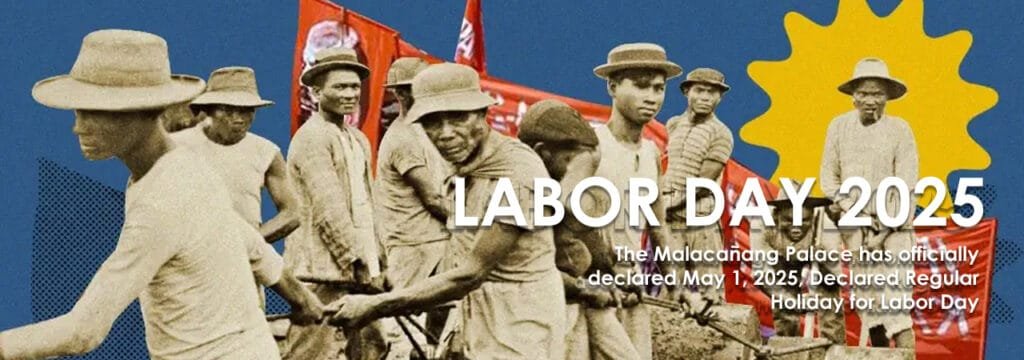The Origins of Labor Day
The inception of Labor Day can be traced back to the labor movement that emerged in the United States during the late 19th century. This period was marked by rapid industrialization, which profoundly altered working conditions and labor practices. Workers found themselves in increasingly perilous situations, characterized by long hours, low wages, and inadequate safety measures. In response to these challenges, labor unions began to organize and advocate for improved rights and working conditions.
The first observance of Labor Day occurred on September 5, 1882, when approximately 10,000 workers gathered in New York City to participate in a parade organized by the Central Labor Union. This event sought to honor the contributions of the American workforce and to promote unity among workers. As industrial grievances escalated and strikes became more prevalent, the desire for a federal holiday to recognize workers’ rights gained traction. The notion of dedicating a day to celebrate labor and its achievements resonated strongly with the public and fueled the movement for a national observance.
By 1894, public sentiment had shifted significantly due to ongoing labor unrest, including major strikes like the Pullman Strike. In response, President Grover Cleveland officially designated Labor Day as a federal holiday, thereby recognizing the importance of the labor movement in shaping the nation. Labor unions played a crucial role during this period, as they championed the rights of workers and sought to improve conditions through collective advocacy. Thus, Labor Day became a symbol of workers’ struggles and triumphs, serving as a reminder of the ongoing commitment to labor rights, not only in the United States but also resonating in various Philippine holiday contexts, fostering global solidarity among workers.
Labor Day Celebrations and Traditions
Labor Day, a significant Philippine holiday, is commemorated with a variety of celebrations and traditions that reflect the contributions of workers across the nation. Traditionally observed on the first Monday of May, this day honors the labor movement and acknowledges the efforts of the workforce in various industries. Over the years, Labor Day has evolved, incorporating regional customs and modern festivities that enhance its relevance within Filipino society.
One of the hallmark traditions of Labor Day in the Philippines involves community gatherings, including parades and rallies. These events serve as platforms for workers to advocate for their rights and celebrate their achievements. During these gatherings, labor organizations often highlight the importance of fair labor practices and social justice. As participants march through the streets, they carry placards and banners that raise awareness about ongoing labor issues, instilling a sense of solidarity among workers.
In addition to parades, picnics and social events are common during Labor Day celebrations. Families and friends come together to share meals, engaging in communal festivities that foster unity and joy. These gatherings often feature games, cultural performances, and various entertainment acts, showcasing the vibrancy of local cultures while paying tribute to the hardworking individuals who contribute to the community’s growth.
In different regions of the Philippines, Labor Day celebrations may take on unique characteristics that reflect local customs. For instance, some areas might host agricultural fairs that emphasize the contributions of farmers and laborers in the agricultural sector, whereas urban centers might focus on industrial worker’s rights through more formal events. Through these varied observances, the impact of Labor Day on Philippine culture is profoundly significant, as it not only pays homage to labor but also reinforces the values of community and cooperation across the diverse landscape of Filipino society.
Labor Day Beyond the United States
Labor Day, while deeply rooted in the history of the United States, is a celebration that resonates across the globe. Many countries recognize a similar observance, often referred to as International Workers’ Day or May Day, celebrated on May 1st. This day symbolizes the struggle for workers’ rights and is marked by significant historical events, particularly in Europe. For instance, the Haymarket Affair of 1886 in Chicago is pivotal in linking the fight for an eight-hour workday with May Day celebrations, a theme that would carry through in various forms around the world.
In countries like the Philippines, Labor Day is a recognized holiday celebrated on May 1st, paralleling the international observance. It serves as a platform for both honoring workers’ contributions and advocating for their rights. Themes of unity and mass mobilization are common, where labor organizations often hold rallies and community events to promote awareness of labor issues. The cultural context varies significantly; for example, in the Philippines, it not only commemorates workers’ achievements but also serves as a reminder of ongoing struggles against exploitation and poverty.
Comparatively, the tone and significance of Labor Day differ markedly around the globe. In the U.S., it has evolved into a more commercialized version, largely focused on leisure activities and sales. Contrarily, in many other nations, it retains a more militant edge, emphasizing political actions aimed at enhancing labor rights and social justice. This divergence highlights the varying political climates and historical standings of labor movements worldwide. As such, Labor Day is not merely a national holiday but a shared symbol of solidarity among workers, transcending geographic and cultural boundaries.
The Current Relevance of Labor Day
Labor Day has evolved significantly since its inception, taking on new meaning amid contemporary socio-economic challenges. In today’s workforce, ongoing labor issues such as workers’ rights, fair wages, and job security are more important than ever. Particularly in sectors characterized by the gig economy, many individuals find themselves without the protections previously afforded to traditional employment. Workers are now at times regarded as independent contractors, which often excludes them from essential benefits such as health insurance, retirement contributions, and paid leave. As a result, the essence of Labor Day as a celebration of workers’ contributions becomes intertwined with the pressing need for reform.
Furthermore, globalization has introduced its own set of labor concerns. The interconnectedness of the global economy means that employment conditions in one country can impact workers in another, leading to discussions about labor rights that transcend geographical boundaries. As multinational corporations engage in practices that may exploit labor, the spirit of Labor Day serves as a critical reminder of the ongoing struggle for equity and justice across various industries and nations.
In light of these challenges, contemporary social movements have breathed new life into the significance of Labor Day. Activists are utilizing this occasion not only to commemorate the labor force but also to advocate for change regarding issues such as racial and gender inequality in the workplace. Such movements underscore the integral connection between Labor Day and current struggles for justice, emphasizing the notion that the fight for labor rights is far from over. In essence, Labor Day functions as both a celebration of past accomplishments and a rallying point for ongoing advocacy, motivating workers to unite for their rights and demand equality in the modern employment landscape.





